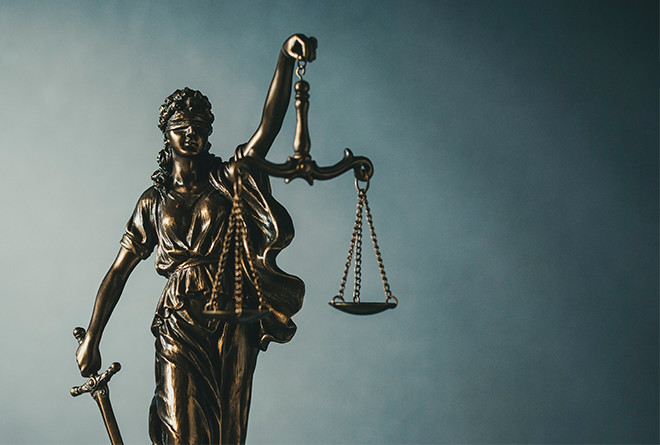
#50Ad Section 363 of the Act No. 301/2005 Coll. on Criminal Judicial Procedure
In the last few years, it would be difficult to find section in our legal system that would be discussed more than section 363 of Act No. 301/2005 Coll. Criminal Judicial Procedure as amended (hereinafter referred to as „Criminal Judicial Procedure“). For instance, the most media-related cases associated with this section were criminal proceedings against a Slovak businessman and partner of the investment company PENTA INVESTMENTS LIMITED, as well as proceedings against the former Director of the Slovak Information Service. Negative opinion towards procedural application of said Section has been growing as well. Since non-lawyers might not be familiar with this section, let's take a closer look at it.
Section 363 is in chapter eight, part one of the Criminal Judicial Procedure. The whole chapter eight titled as Exceptional remedies. These measures are generally directed against the decisions of the Court which are already in force. Even though such decisions are valid and should not be further modified, we must also take into account the essence of fair decision-making. It is precisely for this reason that extraordinary remedies are only available where justice was supposed to be affected in some way.
In the Criminal Judicial Procedure special remedies are as follows:
- annulment of the final decisions in the preparatory proceedings by the Prosecutor General following Section 363 of the Criminal Judicial Procedure;
- recourse following Section 368 of the Criminal Judicial Procedure; and
- action for retrial following Section 393 of the Criminal Judicial Procedure.
The provision of Section 363 of the Criminal Judicial Procedure is worded as follows:
“(1) The Prosecutor General shall revoke a final decision of a prosecutor or a police officer if such a decision, or a proceeding which preceded it, has infringed the law.
(2) Where the decision or the procedure referred to in paragraph 1 concerns more than one person or actions, the Prosecutor General may annul only that part of the decision or procedure which concerns one of those persons or actions.
(3) The Prosecutor General shall, in the proceedings referred to in paragraph 1, make a decision by way of an order against which no appeal is admissible.”
This provision was introduced on 1st January 2006, that is to say by the adoption of the Criminal Judicial Procedure. By putting such an institution in legal order, the position of the Prosecutor General has been strengthened. According to the Explanatory Memorandum to the Criminal Judicial Procedure, the reason for adopting such a remedy was to deter the courts from correcting illegality in preparatory proceedings, the legality of which is supervised by the prosecutor.
The following persons may lodge an application under Section 364 Par. 1 of the Criminal Judicial Procedure:
- the accused for her or his own benefit;
- person, who could bring an appeal in her or his favour for the benefit of the accused;
- offended to the detriment of the accused;
- the person concerned.
Prosecutor General is entitled to revoke the decision on the basis of an application, which must be made within three months of the validity of the decision. The application might be made to any prosecutor’s office, and might be made in writing, orally by minutes, by telegraph, by fax, by electronic means, with or without a qualified electronic signature, in which case the application must be confirmed in writing or orally within three working days.
If the application has been lodged by an unauthorised person, Prosecutor General shall not be obliged to act. However, in addition to the application, Prosecutor General may also decide on the basis of his own knowledge, that is to say, of his own motion, in favour of or against the accused.
Under Section 364 Par. 3 of the Criminal Judicial Procedure, the time-limit for Prosecutor General to annul a decision is six months from the date of the validity of the contested decision. This period cannot be extended.
Section 363 Par. 2 of the Criminal Judicial Procedure provides that, where a decision concerns more than one person or more than one actions, Prosecutor General is entitled to annul only the part which concerns only certain persons or certain action. This is the case where the decision concerns, for example, two accused persons or two actions, but the infringement occurred only in relation to one of the accused persons or only in relation to one action.
Under Section 363 Par. 3 of the Criminal Judicial Procedure, an appeal against such an order is not admissible, that is to say, a complaint is not admissible.
Where there has been a ruling that a law has been infringed by a decision, the Prosecutor General shall revoke the decision and, pursuant to Section 367 Par. 1 of the Criminal Judicial Procedure, shall either decide the matter himself or order the authority to which the decision relates to take further action and to decide the matter. This body is then bound by the legal opinions of Prosecutor General. The institution would not be bound by the opinion of Prosecutor General only if the factual or legal circumstances on which the legal opinion of Prosecutor General is based were to change in the case.
The main purpose of Section 363 of the Criminal Judicial Procedure is to ensure that proceedings are conducted in a lawful and fair manner. Why such an action should be taken by the prosecution is also justified in the Article 149 of the Act No. 140/1992 Coll. the Constitution of the Slovak Republic, according to which “Prosecutors´ office shall protect rights and interests protected by law of natural and legal persons and of the State.”
Legal commentary
We provide daily commentary from various fields of law, business, and audit. We try to give an objective and impartial view of current topics that move the professional world.
- AuthorAdmin
- Date26.4.2022
- Webwww.lexante.sk